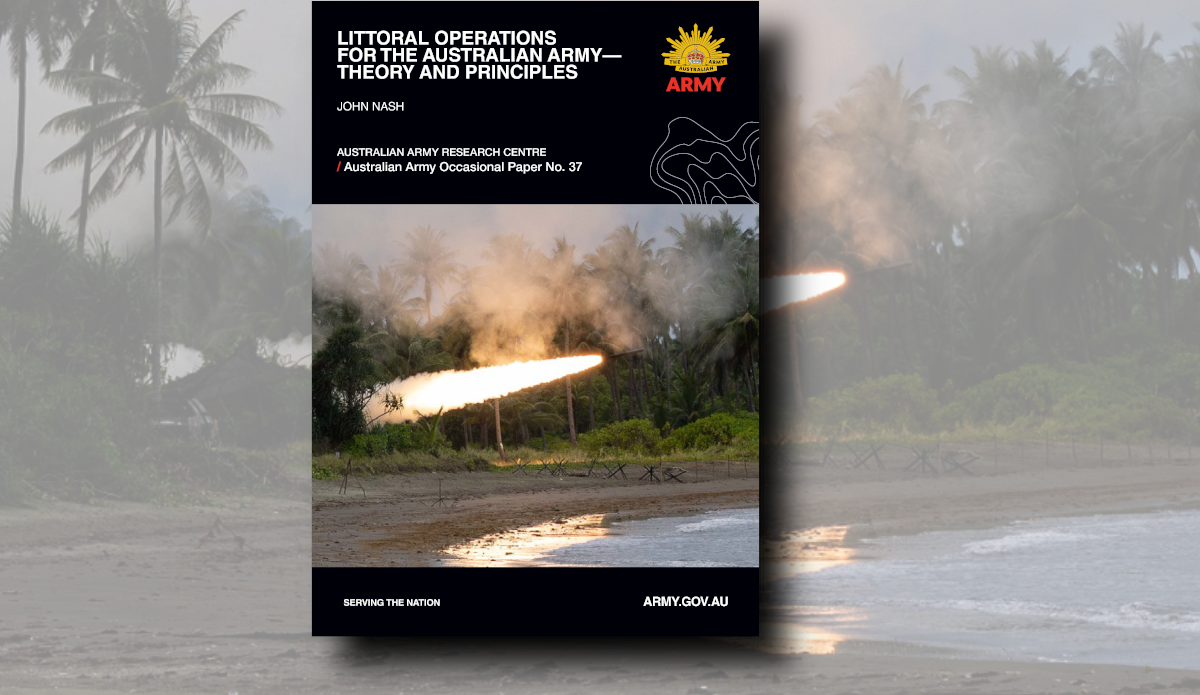‘You may not be interested in war but war is interested in you’
Attributed to Leon Trotsky
When thinking about war and its effects most Australians believe that it occurs overseas and has no real influence on their lives. This is changing. Enabled by advances in technology and societies that demand greater interconnection, future war will exploit the information domain because humanity now populates a domain that war finds useful.
Few Australians were left untouched by the experience of the First and Second World Wars. High casualties, rationing, blackouts, and a real fear of invasion in 1942 meant that everyone felt the hard hand of war. By contrast, the various wars since 1945 have had little effect on those not in uniform. Even though the Australian Defence Force (ADF) has been on operations continuously since 1999 the effect on the wider population has been minimal.
The Australian Army’s Future Land Warfare Report (FLWR) of 2014 identified a more connected future as one of its trends. The report expects global economic, social and communication systems to become increasingly interconnected. However, while greater connection will bring many benefits, it will also increase the vulnerability of Australian society to threats. Cyber, for example, has both an offensive or defensive potential and the target is always the human, ranging in scale from an entire society to particular individuals. The effect of the information domain on humans must be understood so that it can be influenced and targeted to produce an effect or outcome. After all war is inherently a human interactive endeavour.
Cyber attack and defence is now a global constant and this will remain the case into the future. Such attacks are scaleable, attributable or unattributable, precise or can have mass effect, and can be used by states or non state actors. The second order effect is that an organisation will never know if the information its leaders act upon is safe or compromised when they make decisions. Decision makers, including government ones, may never know with certainty if they have been mislead by an external actor. This challenge will likely never have a definitive solution. In a military context it will lead to endless shaping operations in the information domain. To a technologically advanced nation this is a clear advantage over those less advanced, however the real challenge is for adversaries that have the same or greater capabilities and also those organisations that choose not to operate in the information domain.
The consequence of embedding Australian society that is increasingly connected within a larger global society is that war can once again affect our entire society. It will be possible for adversaries to influence Australian society by information shaping operations. If Australian society is affected then the Australian Government will be as well. A connected Australian society that finds it a subject of war through the information domain will present a tempo of difficult challenges for any Government. If the Government is not responsive to society’s needs its position may quickly become untenable – a distinct advantage for any potential adversary.
The ADF needs to embrace investment in new and enhanced capabilities in space, cyber, electromagnetic and information domains if it is to remain competitive in future war. War now has the potential to directly affect Australian society in ways that was not previously possible. As a consequence, Australia and the ADF are in an information domain arms race, one that they must win.




